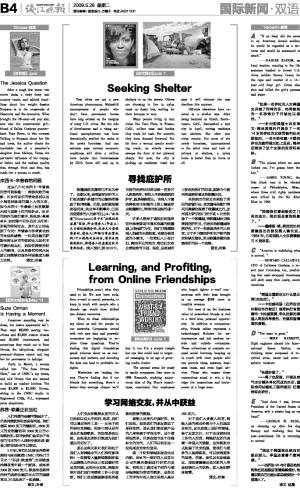Friendships aren't what they used to be. We now have tools, from e-mail to social networks, to keep in touch with people who a decade ago would have drifted into distant memories.
What do these relationships say about us and the people in our networks Companies armed with rich new data and powerful computers are beginning to explore these questions. They're finding that digital friendships speak volumes about us as consumers and workers, and decoding the data can lead to profitable insights.
Marketers are leading the way. They're finding that if our friends buy something, there's a better-than-average chance we'll buy it, too. It's a simple insight but one that could lead to targeted messaging in an age of growing media clutter.
The second arena for study is inside companies. One team at IBM Research, studying anonymous data of Big Blue's consultants, concluded that employees who forged tighter e-mail connections with their boss brought in on average $588 more in monthly revenue.
For most of us, the business value of networked friends is tied to a third area, personal opportunity. In addition to companionship, friends online represent a turbocharged Rolodex for entrepreneurs and job seekers inside and outside companies. These collections of contacts expand social horizons, keeping us in touch with more people who can provide ideas, answers, business leads, and even legal advice. Those who master these connections stand to win a big edge: the connections and brainpower of a large team.

